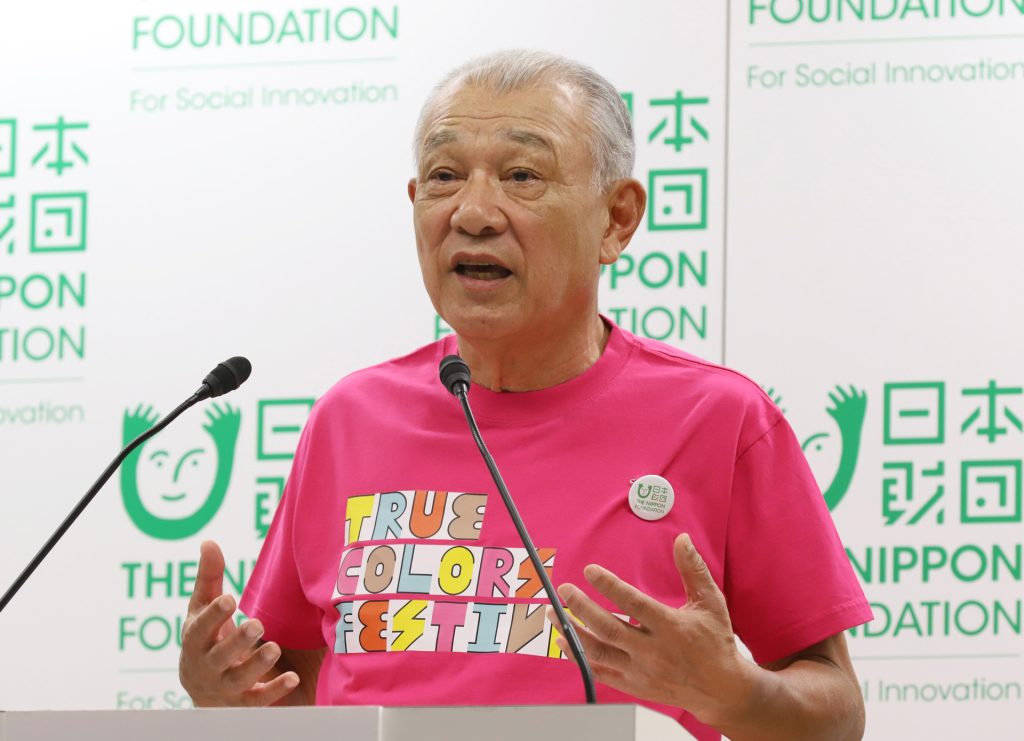On Point No. 8
(This article is a translation of the original Burmese language version that ISP-Myanmar posted on its Facebook page on March 10, 2022.)
∎ Event
On March 10, 2022, Japan’s Special Envoy for Myanmar National Reconciliation, Mr. Yohei Sasakawa met with Ethnic Armed Organization (EAO) leaders in Chiang Mai, Thailand. ASEAN’s Special Envoy to Myanmar, Mr. Prak Sokhonn, plans to visit Nay Pyi Taw in the third week of March. President Joe Biden is set to organize an ASEAN-U.S. Summit in Washington D.C. in the near future.
∎ Preliminary analysis
Special Envoys to Myanmar have so far failed to achieve significant results in their work with the Myanmar junta. They have also struggled to gain credibility with Myanmar’s population. The U.N.’s newly appointed Special Envoy to Myanmar, Ms. Noeleen Heyzer, has struggled to proceed with her work to achieve dialogue between the parties, and she has faced strong criticism for her saying of “power-sharing with the junta” in an interview. Moreover, no ASEAN Special Envoy has been able to convince the military to bring an immediate end to all violent conflict, which is one of the conditions agreed upon in the Five Points consensus between the ASEAN leaders. Additionally, all international actors have delayed any constructive engagement with different stakeholders in the Myanmar conflict, including National Unity Government (NUG). Myanmar’s democratic opposition remains suspicious of Japan’s envoy Mr. Sasakawa as he is closed to the Myanmar military.
As ISP-Myanmar outlined in On Point No. 4, Special Envoys to Myanmar have limited influence; they continue to be restrained by these limitations, preventing them from initiating at least the two most important aspects of their mission: “civilian protection” and providing effective “humanitarian assistance” to those in need. The key reason for the delay is the SAC’s lack of cooperation with the special envoys. At present, the SAC has intensified the so-called ‘pacification offensive’ in several regions, including pillaging and scorching villages and the confiscation of activist property. The numbers of deaths, and internally displaced people, are both escalating as well.
Against this tumultuous background, Mr. Sasakawa met individually with EAOs leaders in Chiang Mai on March 10, 2022. They included Saw Mutu Say Poe, chairman of the Karen National Union (KNU), Khu Oo Reh, chairman of the Karenni National Progressive Party (KNPP), and Sao Yawd Serk, chairman of the Restoration Council of Shan State (RCSS). He also met with top leaders of the Peace Process Steering Team (PPST). Prior to the meeting with Myanmar’s political parties, Mr. Sasakawa also had a consultation with Cambodia PM Hun Sen and Thailand PM Prayut Chan-O-Cha. It is reported that he visited Indonesia as well. These meetings are at a critical juncture and, on meeting with Mr. Sasakawa, PPST leaders had a parallel meeting with three chairmen of EAOs – the first time this has happened since the military coup last year. After these initial meetings, Mr. Sasakawa may visit Myanmar or have an online meeting with the SAC leaders. ASEAN’s Special Envoy to Myanmar, Mr. Prak Sokhonn, reportedly will visit Myanmar on March 20-23, 2022.
It is difficult to determine the result of the Japan Envoy’s Chiang Mai meeting and the ASEAN Envoy’s trip to Myanmar. It is a significant coincidence that the ASEAN-U.S. summit has also been planned to be held in March this year. President Joe Biden’s invitation of ASEAN leaders is also coincident with the height of Russia’s invasion of Ukraine. Myanmar junta leaders could be left out from the summit, but the Myanmar crisis could still be one of the priorities on the agenda.
Many people presume that China provides critical support to ASEAN’s rotational chair, Cambodia’s initiative to Myanmar, but the ASEAN-U.S. summit could come up with a new approach to Myanmar’s crisis, while the former fails to produce results. Practically, Myanmar is a difficult case for ASEAN to be handle and Cambodia has faced disappointment as well. This deadlock may continue until Indonesia takes over leadership of ASEAN in 2023, which may determine whether the regional grouping could act to improve the Myanmar crisis.
∎ Scenario forecast
Most Special Envoys’ goodwill initiatives to Myanmar rarely see significant results and often find themselves trapped in a deadlock, which diminishes their credibility amongst local parties. ASEAN’s approach is yet to provide more substantial progress and, in a worst-case scenario, the Myanmar junta could even leave from the regional grouping. As ISP-Myanmar pointed out in OnPoint No. 6, if the Special Envoys fail to recognize the role of the opposition National Unity Government (NUG), and its local People’s Defense Forces, as new players in the conflict in Myanmar, such diplomatic efforts could struggle to successfully provide humanitarian assistance, and resolve civil conflicts in Myanmar. With the intervention of Special Envoys being such a delicate operation, it is crucial for them to carefully choose how to deploy different key players in which role, and to consider when it could be most effective to do so. However, the envoys should not shy away from key stakeholders.
Moreover, the envoys from the United Nations, ASEAN, China, Japan must collaborate on their efforts in Myanmar, with the help of other regional and global powers, including UN, ASEAN, China, India, Japan, and the United State. More importantly, these envoys must listen to the voice of the people and their aspirations. If they fail to do so, international intervention in Myanmar could simply create a political playground for international powers, rather than resolving the crisis in Myanmar.

➥ A policy editorial: A Roadmap for the ASEAN Special Envoy’s Journey
➥ ISP’s OnPoint No 6: U.N. Special Envoy’s “Humanitarian Plus Approach and Its Concerns”

